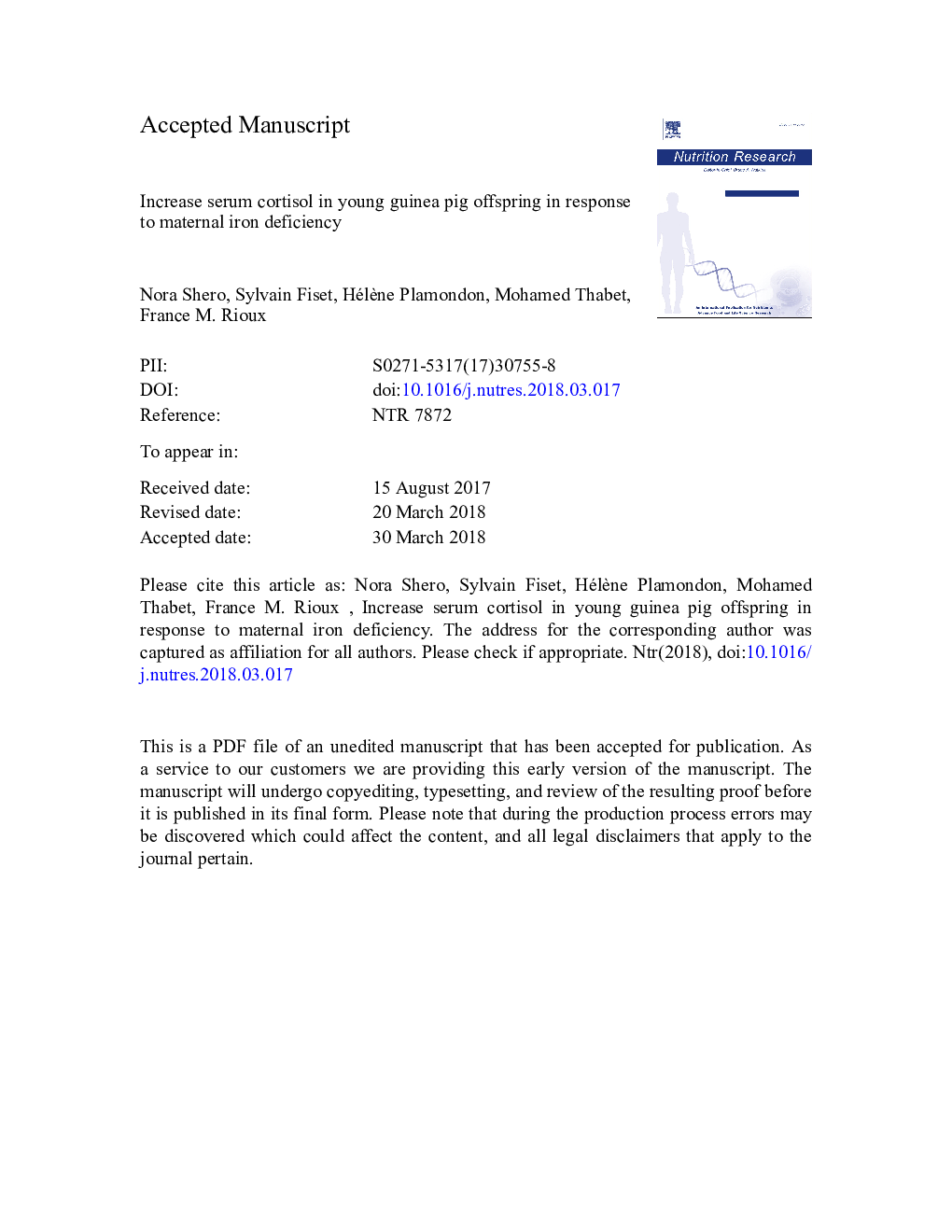| Article ID | Journal | Published Year | Pages | File Type |
|---|---|---|---|---|
| 8634145 | Nutrition Research | 2018 | 41 Pages |
Abstract
Iron deficiency (ID) has been reported as a risk factor in the pathology of attention-deficit/hyperactivity disorder, although the mechanisms seem unclear. Previous results from our research group showed that guinea pig offspring born from ID dams were significantly more active in the Open Field Test than the controls. This behavior could potentially be associated to stress. We therefore hypothesized that maternal iron deficiency (MID) elevates the offspring serum cortisol, a biomarker of stress, during childhood and possibly at mature age. Twenty-four female guinea pigs were fed an iron-sufficient (IS) diet (114 mg/kg) or ID diet (11.7 mg/kg) during the gestation and lactation. Pups in both groups were weaned at postnatal day (PNd) 9 and given an IS diet. Hematocrit and serum cortisol levels were measured in dams at every trimester of gestation and in pups at PNd24 and 84. We found no impact of MID on dam's cortisol values. However, our findings indicate that MID increased cortisol secretion in the offspring during childhood, cortisol values being significantly elevated in ID than IS pups at PNd24 (P < .05). During adulthood (PNd84), both groups showed comparable cortisol levels. The elevated cortisol secretion observed in the offspring born from ID mothers during childhood may indicate increased stress reactivity which may have contributed to the higher level of activity when tested in a novel open environment. These findings suggest that MID can potentially act as internal stressor affecting the early development conceivably leading to increased stress levels in the children.
Keywords
Related Topics
Life Sciences
Biochemistry, Genetics and Molecular Biology
Endocrinology
Authors
Nora Shero, Sylvain Fiset, Hélène Plamondon, Mohamed Thabet, France M. Rioux,
